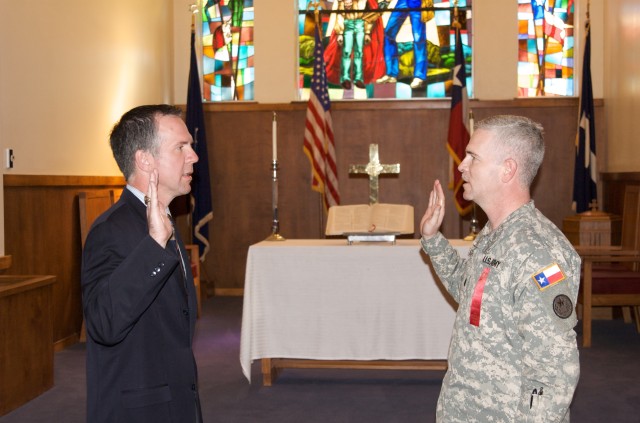WASHINGTON (Army News Service, Nov. 13, 2008) - A former Soldier and hospital administrator from Texas watched the unfolding news reports about Soldiers and Walter Reed Army Medical Center last year with excitement and optimism.
William Craig was soon after fascinated by the creation of Warrior Transition Units and their triad of care - squad leader, nurse case manager and primary care manager. He was interested on both a personal and professional level. He had always retained strong ties to the military and now wondered, could this groundbreaking idea be useful in a civilian hospital'
"Most of my professional life, I've heard that the military can look to professional organizations and learn lessons and apply strategies, etc., but I think that's actually a two-way street. I think civilian organizations can also look to the military and find lessons, and so that's what struck me about the concept for managing the outpatient Soldiers through the Warrior Transition Units ... I thought it was a very interesting application of the case-management process that we also use in the civilian healthcare world, but it seemed to me that they had a unique collaboration ... among the different disciplines involved in the care of the Soldiers."
A few months and a few phone calls later, Craig was on his way to Walter Reed with his supervisor's blessing for professional-development experience. Welcomed as a member of the team, he spent a week learning about how the new warrior care system worked. He came back convinced that he was right and civilians could use the Army's triad of care as an example.
"All those things working together in concert to manage the process - I think I've never seen it defined quite so succinctly in my civilian experience," he said. "Certainly we have those components in elements of civilian healthcare that work with outpatients. However, I thought the organization of that model was very unique and very effective in the way I saw it being applied.
"We could, in the civilian world, take that same concept and look at different types of outpatient populations, whether they are members of an insurance plan, or any population that's a defined group of people that a healthcare organization has some level of responsibility for. I think that the triad of care can have application then, even to the point of extending it into community-outreach activities. We are involved in several that involve the homeless in our community or other specific populations that have different types of needs. We have applied some of those same principles locally, particularly the case-management concept," Craig continued.
He added that the squad leader would be the hardest role to replicate in the civilian world, but that the role of ensuring patients take medications and go to their appointments is important.
His time at Walter Reed and the injured Soldiers he met also inspired Craig to rejoin the Army Reserve after separating 12 years ago. He said he had been thinking about it for a long time, but that the experience galvanized him and made him realize he could continue to serve.
"I think that we make the global war on terror -- and the fact that we've got Soldiers, Sailors, Airmen and Marines in harm's way -- a talk-show topic. We make it an issue for political debate, but it's not real to a lot of people. I know for me, going to Walter Reed and spending the week there, it became real because I saw the faces of those Soldiers who had been impacted directly ... The military and what our military is doing in the world today became very real and personal for me just by the fact that I was in their presence," Craig said.
"The week at Walter Reed was an epiphany. It just all came together, almost, in a way, divine intervention, to have that opportunity to go up there and have that week. The path that I needed to be on coming back from Walter Reed seemed very clear. In my heart, I knew I really wanted to put the uniform back on," he explained.
Just as he originally received a direct-commission to serve as an Army Medical Detachment officer, Craig will again be serving the Army Medical Command as an individual-mobilization augmentee at Ireland Army Community Hospital on Fort Knox, Ky., in health care administration. The new captain said he's particularly interested in consequence management and weapons of mass destruction response.


Social Sharing